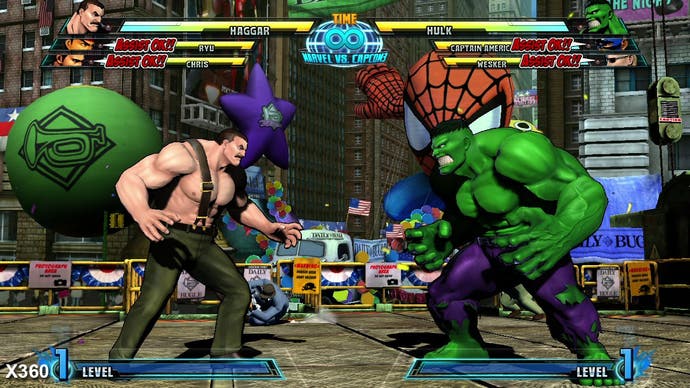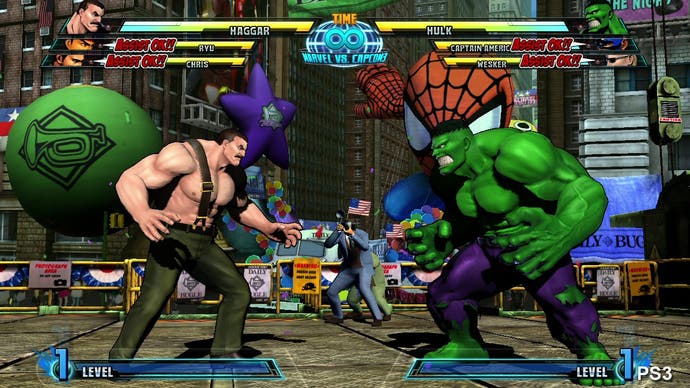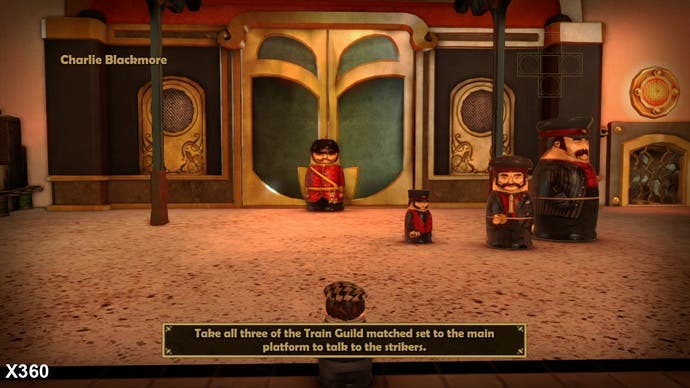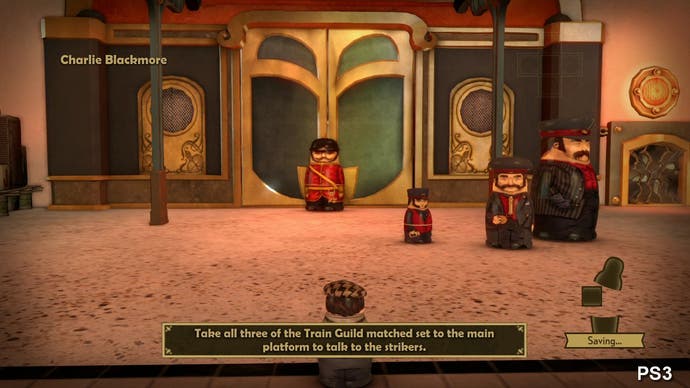Xbox 360 vs. PlayStation 3: Round 29
Marvel vs. Capcom 3, Test Drive Unlimited 2, Fight Night Champion, Stacking, de Blob 2.
Looking at the frame-rate tests, both versions seem to be matched for the most part. In regular gameplay, with just two characters on-screen that key 60FPS experience is largely maintained. It only appears to drop in more strenuous situations - such as in the performance of Hyper or team Hyper moves, in which case the effect on the PS3 is greater.
Throw a total of four characters into the mix, however, whilst tag-teaming, and we see more distinct results: the PS3 game starts to drops frames more noticeably than the 360 version. These dips last mere seconds, and are far from being very impactful on the way the game plays as typically the player is setting back and watching the fireworks. However, team attacks do segue directly into action and it is conceivable that expert players will feel the difference.
Moving on, it's pretty clear that both versions are an almost complete match: character and environmental modeling looks identical, as does almost all the texture details and lighting. There are a handful of subtle, very small differences to be found, which mainly consist of GPU-specific oddities and some mild texture changes. However, neither version can really be considered better than the other, with these 'quirks' being seen more as graphical curiosities than anything else.


Also, like Street Fighter IV, both 360 and PS3 owners get the use of self-shadowing on the characters - bringing additional depth that complements their new artistic direction. On 360 the characters also benefit from having more samples and perhaps even higher-resolution shadows, while the Sony platform is employing regular percentage closer filtering (PCF).
In the final analysis, there's no denying that Marvel vs. Capcom 3 is a great-looking release on both formats, and what graphical differences there are really make no odds on the quality of the overall game. The less impactful frame-rate drops probably make the Xbox 360 version the game of choice for the top-tier MVC3 players, but the PS3 game has charms of its own that may well make it the better choice for the more mainstream user owing to the larger array of control options available.
While owners of both formats get the ability to use MadCatz's exceptional Tournament Edition Fight Sticks, PS3 users also have the better standard controller option in the form of the basic DualShock3. More importantly, owners of the Sony platform also have access to a USB-based version of the Japanese SEGA Saturn pad - the de facto standard in fighting game controllers. If you don't want to go for the full arcade stick experience, this is the best controller to have.
But outside of this, online should be your number one consideration - if you favour PSN or Xbox Live for your multiplayer fix, that should be the main factor in deciding which version to opt for. MVC3, as with Street Fighter IV or any good 2D beat-'em-up worth its salt, is all about community play, learning and building up your skills, and while nothing can match living room versus gameplay, online is where you'll meet a more varied range of opponents.
Marvel vs. Capcom 3 marks a great, albeit ever so slightly lacking comeback in the crossover 2D fighting department. The limited number of modes, plus the reduction in options when online may dampen things mildly. But the actual core gameplay is left unscathed, and is still superb in its execution.
- Comparison Gallery
Stacking
| Xbox 360 | PlayStation 3 | |
|---|---|---|
| Download Size | 996MB | 1GB |
| Install | 996MB | 1GB |
| Surround Support | Dolby Digital | Dolby Digital, DTS, 5.1LPCM, 7.1LPCM |
Double Fine's latest Xbox Live/PSN release is seriously worth checking out, marrying old-skool adventure puzzling with a beautiful Edwardian-style silent film aesthetic and a sense of humour that is both sly and juvenile. It's not too difficult to complete, but the key to this game's longevity is the compulsion to complete every puzzle in every way, while amassing all the unique dolls on offer throughout each level.
The core gaming mechanic is fresh and original. As Charlie Blackmore, you're the smallest doll in the land, but you're gifted with a unique ability - the power to leap into other dolls and make use of their own unique abilities. Charlie's capable of moving from doll to doll, from one size to the next, stacking up a range of different abilities required to beat the various puzzled-based challenges laid out before you.
The game looks to be running on a variant of the same tech that powered Double Fine's Brutal Legend, and is very, very similar on both platforms.
Both games appear to be operating at 720p, though horizontal resolution is pulled back ever so slightly - measurements here are difficult owing to the edge detect/blur post process that is used in lieu of hardware anti-aliasing. The overall effect here is quite similar to what we saw in Double Fine's Brutal Legend (which ran at 1152x720), and works fairly well. Both Xbox 360 and PS3 versions use it, but the application seems to differ, with different edges seemingly being processed when you look at head-to-head screenshots of the filmic cut-scenes.


You can nitpick and find the odd small difference in the visual presentation (for example, smoother texture filtering on Xbox 360), but in motion, the overall impression is of a game that looks practically identical on both systems.
In terms of the performance, Stacking is a curious title. It operates at 30FPS for the most part, but there's a level of jerkiness in the update that doesn't correspond with the raw stats. It also has an odd habit of switching in and out of v-sync on both consoles when frames are dropped, as you can see in the performance analysis video.
Both games have their issues but having spent some time with each version it seems to be the case that the PS3 game is marginally smooth overall, but there really is very little in it - aside from the fact that the £8.99 PSN sticker price works out a touch cheaper once you've done your 1200MSP to real money conversion.
- Comparison Gallery
